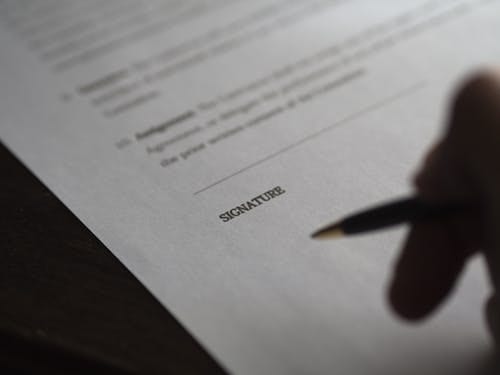By: Jamie Park
Dear Minister of Health and Welfare,
I am writing to express my grave concerns over how the nature of mental illness is generally perceived in my country, and how such perception, in turn, has directly penetrated the legislative process in enacting or making changes to legislation. While the former blamelessly seems to be out of your hands, the latter clearly is in your capability and wisdom.
As you know, South Korea is a country having its strong roots in Confucianism. The following are some of the examples that have been taken for granted over generations. Respecting elders, taking care of one’s parents, raising one’s children well, fathers being the breadwinner, or mothers being the housekeeper. For an adolescent like myself, studying well, getting into top college, getting married and having children seem to be the typical scenario that would make older generations happy. I am not writing to criticize Confucian beliefs; I am writing to possibly identify the source of general perception that is shared among Koreans with regard to mental illness.
I am saddened by how harshly the concept of mental illness is being perceived in South Korea. For instance, for high school students, having constant competition in and out of school is rather a daily routine, which has been taken for granted since childhood. Tests after tests, classes after classes, and grades after grades, Oy Vey. If this is what the Confucian teaching is all about, I have no doubt that Confucius truly loved learning. As you might evidently be aware of the statistics of suicidal rates, South Korea is a country with the highest suicidal rates in the world. The rates among high school students are ever higher than those in other developed countries. Depression and anxiety, two common psychological disorders among the students, are simply overlooked by society, making them highly vulnerable to negative consequences such as suicides.
The negative social stigma attached to individuals with mental illness well translates into how they are treated in the healthcare industry. Somewhat surprisingly, almost all mental disorder treatments in Korea are not covered by insurance plans despite more severe, chronic types rarely get covered with strict constraints. Individuals seeking mental health treatments are simply discriminated by the insurer and have no alternative options but bear the burden of medical and emotional costs. I strongly believe Minister that the individuals seeking psychological treatments should have as much right as the individuals seeking medical or surgical treatments. Insurers, in my opinion, should not ever disproportionately enforce restrictions on individuals with mental disorder.
In order to prevent the insurer from disproportionately imposing limits to the individuals with mental disorder, the Mental Health Parity and Addiction Equity Act (MHPAEA) was suggested by Paul Wellstone and Pete Domenici, two U.S. congressmen, and officially been enacted into law in 2010 in the United States. MHPAEA, as it is defined on the website of U.S. Centers for Medicare and Medicaid Services, generally prevents insurers that provide mental health or substance use disorder benefits from imposing unfavorable benefit limitations on those benefits than on medical or surgical benefits. The bottom line is that there have gradually been legislative efforts in the United States to tackle medical malpractice by the insurer and to build a more just healthcare industry where there is parity in dealing with individuals having whatever illness they suffer from.
I strongly believe that while social stigma can influence the way bills are created and enacted into law, the law equally has power to change the way we perceive things. I fully understand that the United States and South Korea are two different countries. I am stating that as the United States has gradually put enormous effort and succeeded in combating the social stigma as to how individuals with mental disorder should be better perceived and treated by means of the legislative process that is efficient and just, South Korea, I am confident, has the capability as well to initiate and implement the kind of legislative triumphs that U.S. has achieved if public officials like yourself Minister could put more effort into making a life a little just for the individuals with mental illness. After all, we are all humans whether seeking medical or mental treatments. Since we are the same, I strongly believe that individuals seeking medical or mental treatments should be perceived and treated equally. What is more, the medical law and practice concerning medical, surgical and mental illness should be equally governed as well.
Sincerely,
Jamie Park
The content of the International Bipolar Foundation blogs is for informational purposes only. The content is not intended to be a substitute for professional medical advice, diagnosis, or treatment. Always seek the advice of your physician and never disregard professional medical advice because of something you have read in any IBPF content.


